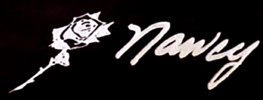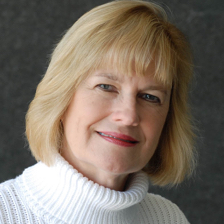Oct. 7, 2017
I never chose my job. Journalism found me.
My father was successively the editor and publisher of two small Virginia newspapers owned by a chain. The first was located in Radford in southwest Virginia and his second one was in Suffolk, near the coast.
 My life was inextricably bound to those newspapers. My first real job was proofreading the Radford paper the summers I was 13 and 14. I’d sit in a dingy office in the basement near the printing presses and workers would bring me freshly inked galleys – long columns of print – to read. I’d mark them up with the proofreading symbols I learned. I was proud that I was a good speller and spotted errors easily. The job had long hours but I loved it because I was working with my father. He’d discuss his day during our rides home for lunch and dinner, almost as one adult to another.
My life was inextricably bound to those newspapers. My first real job was proofreading the Radford paper the summers I was 13 and 14. I’d sit in a dingy office in the basement near the printing presses and workers would bring me freshly inked galleys – long columns of print – to read. I’d mark them up with the proofreading symbols I learned. I was proud that I was a good speller and spotted errors easily. The job had long hours but I loved it because I was working with my father. He’d discuss his day during our rides home for lunch and dinner, almost as one adult to another.
The summer I was 19 and a prospective sophomore at UNC-Chapel Hill, I started working as a reporter at his Suffolk paper, soaking in the art and craft of newspapering. I covered mostly city council and police news. I’d observe the honorable and friendly way my father dealt with employees, customers, advertising prospects and anyone else who came in the door. He even delivered newspapers after hours to customers who’d call us at home to say they hadn’t gotten one. He worked incredible hours to keep the business going, wrote pithy editorials and sometimes shot pictures and wrote high school football stories.
During my sophomore year, I walked into the Daily Tar Heel offices and offered my services to the editor. On my own for the first time, I was put to work immediately. I loved the fraternity of the student newsroom and the daily sense of accomplishment. I was hooked.
My first job after graduation was as a women’s editor for the Daily Progress in Charlottesville, Virginia. During the 38 years I worked for newspapers in Virginia, California, Texas and North Carolina as a reporter and as an assigning editor, I mostly loved it. It was hard, with long days that often stretched into late nights, but I believed that my job was important to society.
In the early 1980s, my father was rewarded for decades of hard work by being laid off by his mercenary chain. He was a few years short of retirement age, but a new generation owned the chain and the ungrateful son wanted to get rid of the old guys. My father negotiated a settlement and eventually wrote columns for the new editor. I treasure those columns. He died in 1995 and I lost the best role model I ever had.
When I think of our president referring to the media as “an enemy of the people,” I’m offended. I wonder if citizens understand how hard journalists work to bring the truth to light. I’ve never met a reporter who didn’t take the work seriously, who didn’t wake up in the middle of the night worrying about misspelling a name or who didn’t put in extra hours to ensure a story was airtight.
I’ve been threatened, cursed at and verbally abused many times, but I still feel that the work of a journalist is a sacred calling.
